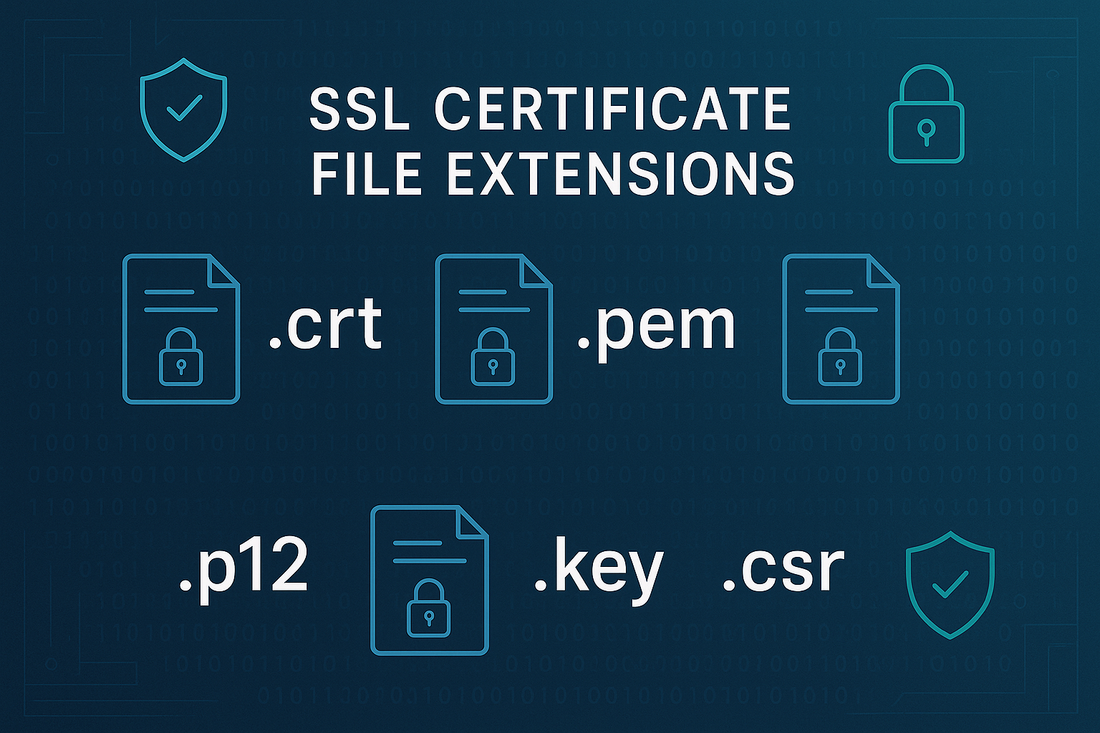
Certificate Extensions Explained
Lisa AndersonShare
SSL Certificate file extensions play a crucial role in digital Certificate management and implementation.
Understanding these extensions helps system administrators, web developers, and IT professionals properly handle SSL Certificates across different platforms and systems.
These file extensions indicate both the format and encoding of the SSL Certificate files, which directly impacts how they can be used in various server environments.
Common SSL Certificate File Extensions
The most frequently encountered SSL Certificate extensions serve specific purposes in different operating systems and server configurations.
The .CRT extension represents a SSL Certificate file that can contain either binary or ASCII content. When working with Apache or Nginx web servers, these files are commonly used for the SSL Certificate installation process.
The .CER extension is particularly prevalent in Windows environments.
Microsoft systems recognize this format natively, making it a preferred choice for Windows Server administrators.
These files can be easily viewed through the Windows SSL Certificate viewer, providing quick access to SSL Certificate details and validation information.
PEM Format Extensions
The .PEM extension denotes Privacy Enhanced Mail format, which has become the de facto standard for SSL Certificate storage.
These files contain Base64 encoded data with distinct header and footer markers.
System administrators often work with .PEM files when configuring Unix-based servers or handling Certificate Signing Requests (CSR).
Private Key Extensions
Private key files typically use the .KEY extension, representing the confidential component of the SSL Certificate pair.
These files require careful handling and secure storage. The .KEY files should never be shared and must be protected with appropriate file system permissions to prevent unauthorized access.
Understanding Certificate Bundles
SSL Certificate bundles often use the .P7B or .P7C extensions, particularly in environments requiring intermediate SSL Certificates.
These formats can contain multiple SSL Certificates in a single file, simplifying the installation process.
Windows and Java-based applications commonly utilize these bundle formats for SSL Certificate chain deployment.
PKCS#12 Format
The .PFX and .P12 extensions indicate PKCS#12 format files, which can contain both the SSL Certificate and its corresponding private key.
These formats provide password protection and are frequently used when transferring SSL Certificates between different systems.
Many organizations prefer this format for backup purposes due to its comprehensive nature.
Platform-Specific Considerations
Different server platforms handle SSL Certificate extensions in unique ways. Apache servers typically work best with .PEM format files, while Microsoft IIS servers prefer .PFX or .CER formats.
Understanding these preferences helps ensure smooth SSL Certificate installation and management across various environments.
Converting Between Formats
System administrators often need to convert between different SSL Certificate formats. OpenSSL provides powerful tools for these conversions.
For example, converting from .PEM to .DER format or creating .PFX files from separate SSL Certificate and key files becomes necessary when migrating between different server platforms.
Security Best Practices
Proper handling of SSL Certificate files, regardless of their extension, requires strict security measures. Private key files should never be stored in publicly accessible directories.
Regular backup procedures should include proper encryption of SSL Certificate-related files, especially those containing private keys.
File Permission Management
Setting appropriate file permissions is crucial for SSL Certificate security. On Unix-based systems, SSL Certificate files should be readable only by the necessary service accounts. Private key files require even stricter permissions, typically allowing read access only to the root user and specific service processes.
Troubleshooting Extension Issues
Common problems often arise from mismatched file extensions or incorrect format assumptions. When a server fails to recognize a SSL Certificate file, verifying the format matches the extension can resolve many issues.
Using OpenSSL commands to inspect SSL Certificate files helps identify format-related problems quickly.
Certificate Management Solutions
Trustico® offers comprehensive SSL Certificate management solutions that handle various file formats seamlessly.
Our systems support all standard SSL Certificate extensions and provide necessary tools for format conversion and SSL Certificate installation.
Professional SSL Certificate management reduces the complexity of handling different file formats while maintaining security best practices.
Future Considerations
As encryption standards evolve, new SSL Certificate formats and extensions may emerge. Staying informed about industry standards and best practices ensures proper SSL Certificate management across evolving technology landscapes.
Regular updates to SSL Certificate handling procedures help maintain security and compatibility with new systems.
Understanding SSL Certificate file extensions remains fundamental to effective SSL Certificate management.
Whether managing a single website or maintaining a large enterprise infrastructure, proper handling of SSL Certificate files and their extensions ensures secure and reliable SSL Certificate implementation.
Trustico® continues to provide expert guidance and solutions for all aspects of SSL Certificate management, including proper handling of various file formats and extensions.



